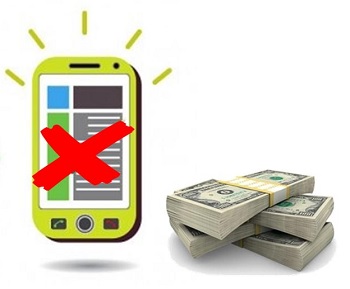The AIMIA has now released its tenth annual index which has provided considerable insight into tech trends.
The Tenth Annual Australian Mobile Phone Lifestyle Index has now been released by the AIMIA, which has allowed the industry to gain a considerable amount of insight with regards to the preferences and behaviors of consumers in Australia with regards to mobile technology.
This year, they discovered that between smartphone and televisions, Australians prefer their cell phones.
In fact, among the respondents to this year’s study, 61 percent said that they would choose their mobile technology – specifically, their smartphone – over a television. That said, 70 percent still said that they preferred their cars. Moreover, when the respondents to this survey were offered the choice from among various types of tech, about 50 percent said that their preference was their smartphone, 34 percent still preferred their laptop or desktop, and 16 percent wanted their tablets.
The survey also looked into a range of different overall behaviors with respect to the use of mobile technology.
 For example, about 30 percent of the respondents to the survey in Australia said that they brought their mobile devices to bed, where they would use them, and that they also watched television there. Another 39 percent said that they always used their smartphones while they were traveling on public transportation such as buses.
For example, about 30 percent of the respondents to the survey in Australia said that they brought their mobile devices to bed, where they would use them, and that they also watched television there. Another 39 percent said that they always used their smartphones while they were traveling on public transportation such as buses.
A surprising 34 percent of respondents had only a mobile phone as their telephone service and did not subscribe to a landline telephone.
When it came to shopping behaviors, the laptop and desktop continued to reign supreme, as 93 percent of PC owners had made a purchase over their computers. Comparatively, among tablet owners, 73 percent had made a purchase, and among smartphone owners, 58 percent had made a purchase over their devices.
Slightly more than one in three respondents stated that they did not wish to receive personalized ads on their mobile technology or computers. This is interesting as it is in direct opposition to the current trend that is growing with respect to the personalization of mobile marketing and advertising through the use of various kinds of messaging.
The results of a survey conducted by Sage North America showed this is the case despite perceived value.
Sage North America has revealed the results of its most recent Sage SMB Survey on Mobile Devices, which included findings on a number of different industries and sectors that see potential value in mobile technology, but that do not set an annual budget to meet those needs.
Among the sectors included in this survey were food and beverage, manufacturing and distribution, and construction.
Those specific industry sectors felt that mobile technology could be overwhelmingly positive in terms of the impact that it has on business, but the vast majority of companies in these areas only purchase solutions in this category as the need arises, instead of setting an annual budget for this tech. According to the Sage North America executive vice president and general manager of mid-market solutions, Joe Langner, “With more than 40 percent reporting that they have a BYOD (bring your own device) policy in place, employers in all three industries may not see the need to budget for mobile since BYOD helps ensure that expenses are relatively small.”
At the same time the survey results still suggested that it is worthwhile for companies to plan for mobile technology.
 Langner stated that it is evident that businesses are seeing the gains in productivity, which indicates that regardless of whether the tech is used as a part of an official BYOD (bring your own device) policy or for a specific item, this type of planning is worthwhile.
Langner stated that it is evident that businesses are seeing the gains in productivity, which indicates that regardless of whether the tech is used as a part of an official BYOD (bring your own device) policy or for a specific item, this type of planning is worthwhile.
In manufacturing and distribution, the survey showed that 74 percent of companies are not creating a budget for these devices or mobile apps. That said 51 percent of those companies do actually use mobile devices as they have perceived their benefits. Among those, 76 percent have at least one employee that uses a laptop, 74 percent has at least one employee that uses a smartphone, and 49 percent have at least one employee that uses a tablet.
In construction, 77 percent of companies said that smartphones provided a positive impact on the productivity of their organization, though under 14 percent had a budget for the hardware or software.
Food and beverage saw the most positive impact of mobile technology in their customer service (73 percent). Among the respondents, one pointed out that these devices help to “answer questions even when we are not in the office.”
 For example, about 30 percent of the respondents to the survey in Australia said that they brought their mobile devices to bed, where they would use them, and that they also watched television there. Another 39 percent said that they always used their smartphones while they were traveling on public transportation such as buses.
For example, about 30 percent of the respondents to the survey in Australia said that they brought their mobile devices to bed, where they would use them, and that they also watched television there. Another 39 percent said that they always used their smartphones while they were traveling on public transportation such as buses.
 Langner stated that it is evident that businesses are seeing the gains in productivity, which indicates that regardless of whether the tech is used as a part of an official BYOD (bring your own device) policy or for a specific item, this type of planning is worthwhile.
Langner stated that it is evident that businesses are seeing the gains in productivity, which indicates that regardless of whether the tech is used as a part of an official BYOD (bring your own device) policy or for a specific item, this type of planning is worthwhile.